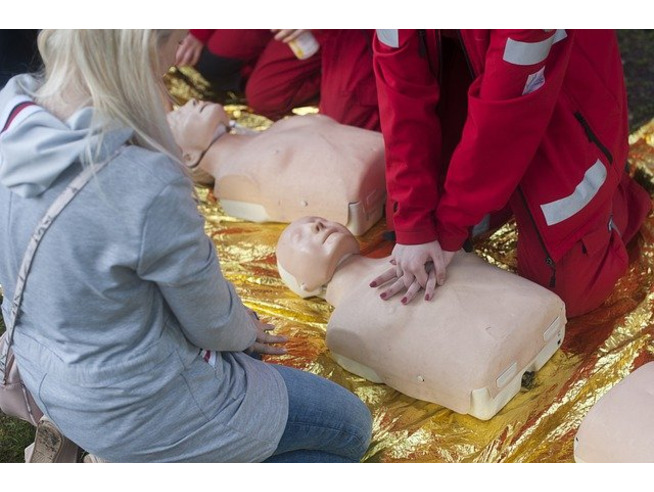RQF - FAW (First Aid at Work)
Learn thorough lifesaving first aid. Photo ID Required.
First Aid at Work (FAW): Regulated Qualification
Course Length:
Three Day Course
Maximum Number of Attendees:
12 (If booking online for up to 12 people select ONE participant. If booking for more than 12 people, please call on 01376 573999)
Course Description:
FAW is one of our most in-depth and comprehensive courses. It covers everything in the Emergency First Aid at Work course. However, in addition to the EFAW training, First Aid at Work also includes Recognition and Management of Illness and Injury in the Workplace. For organisations that require additional first aid training, such as those working with people who have a disability or medical condition, this course covers treatment for a variety or injuries and illnesses.
Those who hold a First Aid at Work Certificate can be used as First Aiders in the workplace in accordance with the Health and Safety at Work Act 1974.
Further to the EFAW knowledge and skills, those who complete FAW training will be able to recognise, deal with, and treat a range of additional scenarios, including: conducting a head to toe survey, fractures, dislocations, sprains and strains, concussion, cerebral compression, spinal injuries, and major illnesses. For the list of Learning Outcomes on the EFAW course that are included in this course, please click here: EFAW Outcomes.
See below for the additional Learning Outcomes the FAW course offers.
Learning Outcomes and Assessment Criteria:
This course will help you to:
Be able to conduct a secondary survey: Identify the information to be collected when gathering a casualty history. Conduct a head to toe survey.
Be able to administer first aid to a casualty with injuries to bones, muscles, and joints: You will be able to recognise suspected; Fractures, Dislocations, Sprains and Strains. Administer first aid for; Fractures, Dislocations, Sprains and Strains.
Be able to administer first aid to a casualty with suspected head and spinal injuries: Recognise suspected; Concussion, Skull Fracture, Cerebral Compression, Spinal Injury. Adminster first aid for suspected; Concussion, Skull Fracture, Cerebral Compression, and SpinalInjury.
Be able to administer first aid to a casualty with suspected chest injuries: Recognise the different types of Chest Injury. Administer first aid for a ChestInjury.
Be able to administer first aid to a casualty with burns and scalds: Recognise the factors that affect the severity of Burns and Scalds. Administer first aid for Burns involving; Dry Heat, Wet Heat, Electricity, and Chemicals.
Be able to administer first aid to a casualty with an eye injury: Give examples of common eye injuries. Administer first aid for eye injuries involving; Dust, Chemicals, and Embedded Objects.
Be able to administer first aid to a casualty with sudden poisoning: Identify the routes that poisons can take to enter the body. Administer immediate first aid to a casualty affected by sudden poisoning. Identify sources of information for treating those affected by sudden poisoning.
Be able to administer first aid to a casualty with anaphylaxis: Identify common triggers for anaphylaxis. Recognise anaphylaxis. Administer immediate first aid for a casualty suffering from anaphylaxis.
Be able to provide first aid to a casualty with suspected major illness: Recognise major illnesses including Heart Attack, Stroke, Epilepsy, Asthma, Diabetes. Administer first aid to a casualty suffering from major illnesses including Heart Attack, Stroke, Epilepsy, Asthma, and Diabetes.
At the end of the training session, there is a written assessment to evidence the learning of the attendees.
This course can be tailored to the bespoke needs of the customer. Please speak to a member of the sales team for further details.
-
What do i need to bring?
For all QCF Regulated courses you must bring photo ID to all sessions.
-
How Long do Certificates Last?
This Depends on the course, please see the description.

